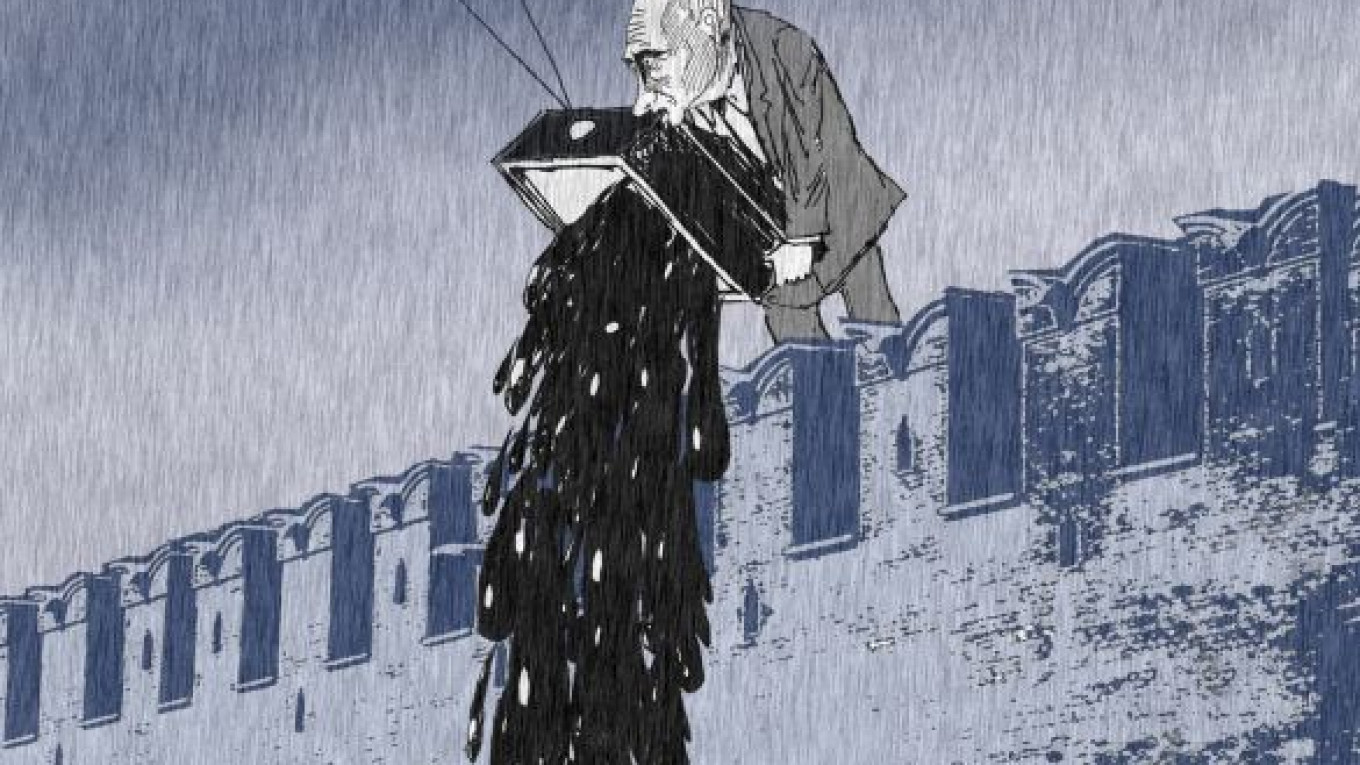President Vladimir Putin's regime has responded to the protest movement by tightening the screws. Since his inauguration on May 7, authorities have adopted even harsher laws and repressive practices marked by aggressive anti-liberalism, anti-Western thinking and conservative Orthodoxy. In so doing, Putin has emulated Belarussian President Alexander Lukashenko, who has successfully held on to power for 20 years by also applying repressive measures, orchestrating fraudulent elections and brainwashing Belarussians through total control of the mass media.
What strategy will Putin employ against the opposition going forward? It is unlikely that Putin will imprison the most prominent leaders of the protest movement. This would turn them into political prisoners and heroes. He learned a lesson after jailing former Yukos CEO Mikhail Khodorkovsky, whose moral authority has grown so much during his years in prison that he has become an ongoing headache for the Kremlin. Putin will also avoid turning Russia into a full dictatorship because this would cause too much damage to his reputation — and that of his inner circle — in the eyes of the West. In this regard, he is not prepared to go to the same extremes as Lukashenko.
At the same time, however, Putin will continue his strategy of intimidating society and the opposition by jailing rank-and-file activists on trumped-up charges of extremism or participation in mass riots. This type of surgically applied repression will remind activists that the authorities are brutal and serious about staying in power at all costs. As a result, many protest-minded people will be scared to join opposition rallies.
Meanwhile, the Kremlin will continue its smear campaigns against protest leaders. This strategy was applied almost immediately after mass protests broke out in December. The first salvo was a series of films and news reports alleging that protesters were agents of the U.S. State Department and had been paid by Washington to attend the mass demonstrations on Bolotnaya Ploshchad and Prospekt Akademika Sakharova.
Efforts to discredit the opposition and social activists were intensified when state-controlled NTV broadcast libelous programs such as "The Anatomy of a Protest" parts 1 and 2. Russian intelligence officers made full use of their underhanded methods to gather material for these pseudo-exposés, including hidden cameras, falsifications and provocation. Pursuing this same goal of discrediting opposition leaders by any means possible, State Duma deputies passed a law making it a criminal offense to participate in a riot, which is loosely defined so that authorities can arrest and prosecute anyone who participates in a peaceful protest. Meanwhile, authorities are investigating opposition leader Alexei Navalny on trumped-up corruption charges.
The key to Putin's black PR campaign is to portray the opposition as radicals, anarchists or ultranationalists who lack both a cogent political program and leadership experience. They are portrayed by the Kremlin's propaganda machine as self-serving puppets of Western powers who hang out by foreign embassies in Moscow begging for financial support. The other message Putin is trying to send is that opposition leaders based in Moscow are out of touch with the common people in the regions and don't understand their problems and needs.
This is why the Kremlin and its army of loyal political analysts and talking heads on television talk shows labeled the protest movement a "mink-coat revolution," a reference to opposition leader, socialite and television celebrity Ksenia Sobchak. In contrast, Putin tried to package himself as someone who understands the downtrodden Russian working class. As part of this cheap propaganda campaign, Putin appointed Igor Kholmanskikh, a gruff former worker at the country's largest tank factory, to become the president's envoy to the Urals Federal District in May.
The main message being sent on Kremlin-controlled television is clear: If these marginal leaders of the "radical opposition" ever seize power, they will destabilize the country.
Admittedly, the Kremlin has been successful in discrediting opposition leaders, thanks to the overwhelming advantage it commands in terms of television media and administrative and repressive resources.
A recent Levada Center poll revealed that the protest leaders are now far more widely known across Russia than ever before. But only 2.1 percent of respondents expressed confidence in these leaders, and 40 percent said they did not trust any of them. The opposition will have to work long and hard to counter the effects of this strategy, and most of their efforts will have to be focused in the regions.
Vladimir Ryzhkov, a State Duma deputy from 1993 to 2007, hosts a political talk show on Ekho Moskvy radio and is a co-founder of the opposition RP-Party of People's Freedom.
Related articles:
A Message from The Moscow Times:
Dear readers,
We are facing unprecedented challenges. Russia's Prosecutor General's Office has designated The Moscow Times as an "undesirable" organization, criminalizing our work and putting our staff at risk of prosecution. This follows our earlier unjust labeling as a "foreign agent."
These actions are direct attempts to silence independent journalism in Russia. The authorities claim our work "discredits the decisions of the Russian leadership." We see things differently: we strive to provide accurate, unbiased reporting on Russia.
We, the journalists of The Moscow Times, refuse to be silenced. But to continue our work, we need your help.
Your support, no matter how small, makes a world of difference. If you can, please support us monthly starting from just $2. It's quick to set up, and every contribution makes a significant impact.
By supporting The Moscow Times, you're defending open, independent journalism in the face of repression. Thank you for standing with us.
Remind me later.








